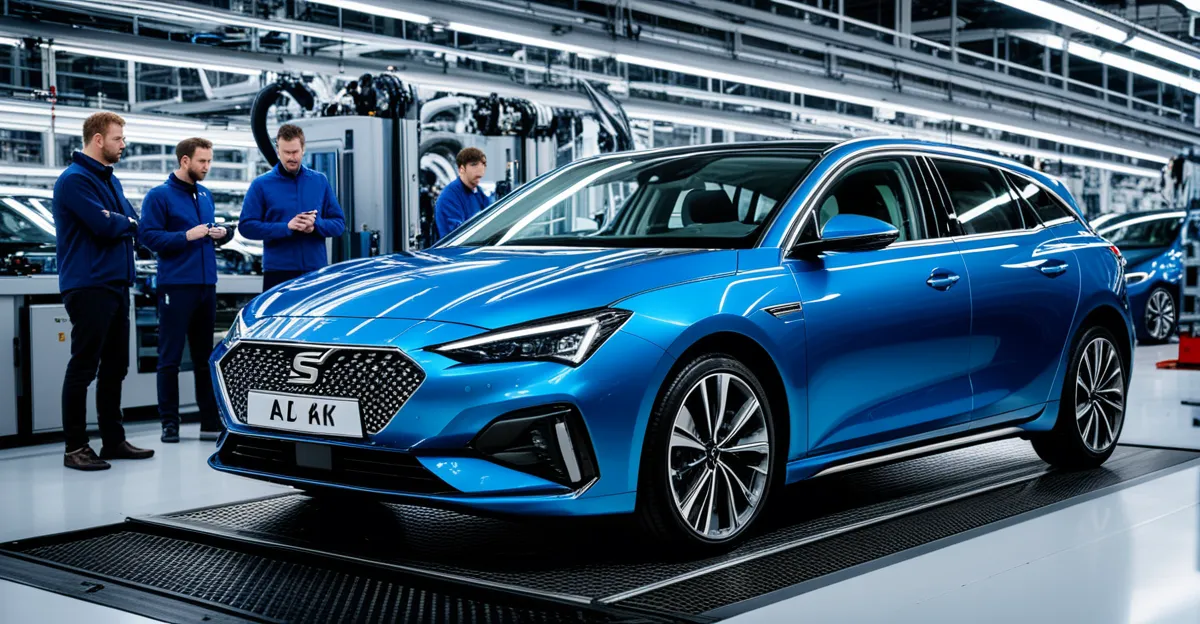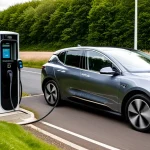Overview of AI in UK Car Manufacturing
The UK automotive industry is embracing AI in profound ways, making it a pivotal force in revolutionizing car manufacturing. AI technologies in car manufacturing are enhancing efficiencies and augmenting production capabilities. The current landscape sees AI being integrated across various stages of automotive production, from design and development to assembly and testing. Machine learning and robotics are at the forefront, automating complex processes, and improving accuracy and speed. This reflects a broader context of Industry 4.0, a movement characterized by digital transformation and smart technologies reshaping traditional industries.
Historically, the adoption of AI within the UK car manufacturing sector has been gradual yet significant. Initial forays into automation and AI-driven processes date back several decades, with early implementations focused on improving assembly line efficiencies and market responsiveness. Over time, the scope has expanded, integrating more advanced AI technologies that are continually being refined and optimized to meet the ever-growing demands of the industry.
Also to read : How Will Electric Vehicles Shape the Future of UK Manufacturing?
Understanding the role of AI in UK car manufacturing provides valuable insights into how digital advancements are transforming conventional practices, paving the way for sustainable growth and innovation. This integration initiates substantial shifts, encouraging resilience and adaptation in the face of evolving technological landscapes.
Technologies Used in AI Production Processes
In the evolving world of AI technologies within the UK automotive industry, machine learning, and robotics emerge as the primary drivers.
In parallel : How is the UK addressing the shortage of charging infrastructure for EVs?
Machine Learning Applications
Machine learning holds the promise of optimizing every aspect of car production. Predictive maintenance is a noteworthy application where algorithms analyse historical data to forecast machinery failures before they occur. This proactive approach not only reduces unexpected downtime but also boosts overall production efficiency, ensuring smoother operations and prolonging equipment lifespan.
Robotics in Manufacturing
Robotics is redefining the assembly line, shifting the paradigm by automating intricate tasks that were traditionally labour-intensive. Modern robotics operate with precision and speed, tackling activities from welding to painting, thereby enhancing production accuracy and minimizing human error. They also play a crucial role in ensuring workplace safety by handling hazardous tasks which are risky for human workers.
Predictive Analytics
Beyond machinery, predictive analytics is transforming inventory management and supply chain logistics. By analysing consumer demand patterns and production schedules, manufacturers can precisely tailor their resource allocation and procurement strategies. This strategized foresight leads to reduced waste, optimized stock levels, and ultimately, cost savings.
Thus, the integration of AI through machine learning, robotics, and predictive analytics is not just an enhancement but an essential evolution for the UK car manufacturing industry. These technologies pave the way for a more efficient, reliable, and innovative automotive production landscape.
Case Studies of Notable UK Manufacturers
In the rapidly evolving landscape of the UK car manufacturers, several entities stand out for their groundbreaking use of AI technologies. These AI case studies highlight how leading companies are pushing boundaries in automotive innovation.
Jaguar Land Rover’s AI Initiatives
Jaguar Land Rover has been at the forefront of integrating AI technologies to enhance their production capabilities. The company has harnessed AI for predictive maintenance, which reduces costly downtimes and improves production line efficiency. By implementing sophisticated algorithms to forecast machinery failures, Jaguar Land Rover ensures seamless operations and prolongs the lifespan of their equipment, showcasing the tangible benefits of AI in car manufacturing.
Nissan’s AI Advancements
Nissan has embarked on ambitious AI advancements to streamline their production processes. They have embraced machine learning to optimize logistics and workflow within their factories, resulting in increased productivity and reduced waste. This strategic use of AI not only refines Nissan’s efficiency but also contributes to significant cost savings, demonstrating their commitment to automotive innovation through technology.
BMW’s AI Strategies in the UK
BMW’s UK facility has implemented robust AI strategies to enhance quality control and production effectiveness. Advanced robotics and machine learning systems are used to monitor and adjust production lines in real-time. This proactive approach ensures high-quality outcomes and exemplifies how AI can drive precision and reliability in manufacturing, leading to consistently superior products and satisfied customers.
Benefits of AI Integration in Production
The integration of AI technologies in the UK automotive industry has ushered in a new era of efficiency and productivity. First and foremost, the benefits of AI include significantly increased operational efficiency. By automating complex tasks and streamlining workflows, AI reduces downtime, keeping production lines running smoothly and reducing costly interruptions. This ensures a more consistent output and swifter turnaround times.
Moreover, AI’s role in improving product quality and consistency cannot be overstated. Advanced machine learning systems meticulously monitor production processes, identifying and rectifying deviations in real-time. This proactive approach to quality control elevates product standards, leading to greater customer satisfaction and fewer product recalls.
Better resource management is another advantage AI brings to the table. Through predictive analytics, manufacturers can optimize inventory and supply chains, reducing waste and ensuring materials are used effectively. Such strategic foresight translates into substantial cost savings and more sustainable practices, enhancing overall productivity.
In summary, the integration of AI not only boosts operational efficiency and product quality but also optimizes resource allocation, driving advancements in the UK automotive sector.
Challenges in Adopting AI Technologies
The rapid incorporation of AI technologies into the UK automotive industry brings both opportunities and challenges. Despite the revolutionary potential of AI, several implementation hurdles persist, primarily affecting small manufacturers who often face barriers due to limited resources. High initial investments and the need for ongoing technological updates demand significant financial commitment, which can be daunting for these smaller entities. Consequently, accessibility to the benefits of AI remains uneven across the industry.
Another prominent challenge is the skills gap within the workforce. As AI systems become more sophisticated, there’s an increasing requirement for employees with specialized skills in data science, machine learning, and robotics. This necessitates extensive training programs, raising concerns about workforce adaptation and potential displacement. Companies must invest in upskilling initiatives to ensure their teams are equipped to navigate an AI-driven environment, balancing technological advancement with human resource management.
Additionally, there’s a growing focus on data privacy and security. AI’s reliance on vast data sets for machine learning and predictive analytics brings forth concerns over how this data is managed and protected. Manufacturers must establish robust cybersecurity measures to safeguard sensitive information and comply with regulations, ensuring consumer trust while leveraging AI’s full potential. Addressing these challenges requires a strategic approach, with industry collaboration and innovation playing vital roles in overcoming these obstacles.
Future Trends in AI within UK Car Manufacturing
As the UK automotive industry continues to adapt, the future of AI promises further transformational changes. With technological innovation driving the next wave of advancements, several trends are expected to shape the future of AI in this sector.
AI Developments on the Horizon
Forecasters predict that AI will further integrate into the design and engineering processes. By leveraging AI’s analytical power, the industry can expect enhanced vehicle design capabilities and accelerated prototyping. These developments will allow for custom solutions tailored to consumer demands, aligning with the strategic objectives of innovation in manufacturing.
Impact of Electric Vehicles on AI Integration
The rise of electric vehicles (EVs) represents a significant area where AI could thrive. As EV production increases, AI will be pivotal in managing complex battery systems and optimizing energy consumption. This evolution necessitates advanced AI tools for efficient resource usage and maintaining sustainable practices, depicting a promising intersection between green technology and AI innovations.
Emerging Technologies Shaping the Future
Emerging technologies such as 5G connectivity and the Internet of Things (IoT) are set to enhance AI’s role within the automotive sector. These developments will enable seamless machine-to-machine communication, resulting in intelligent manufacturing systems that are autonomous and self-optimizing. Such technologies will revolutionize production processes, fostering resilience and sustaining industry growth.
In summary, the future of AI in UK car manufacturing is poised for dynamic growth, driven by ongoing trends in automotive innovation and the increasing prominence of electric vehicles and interconnected technologies.










